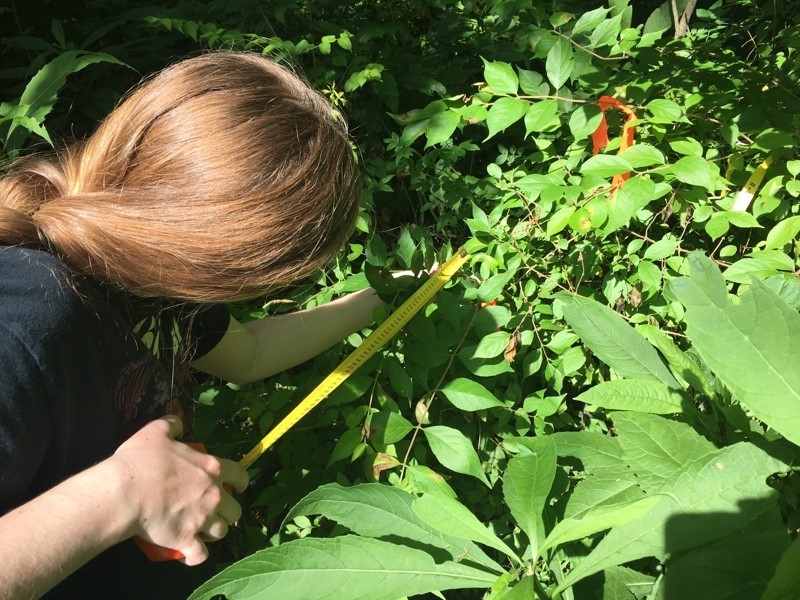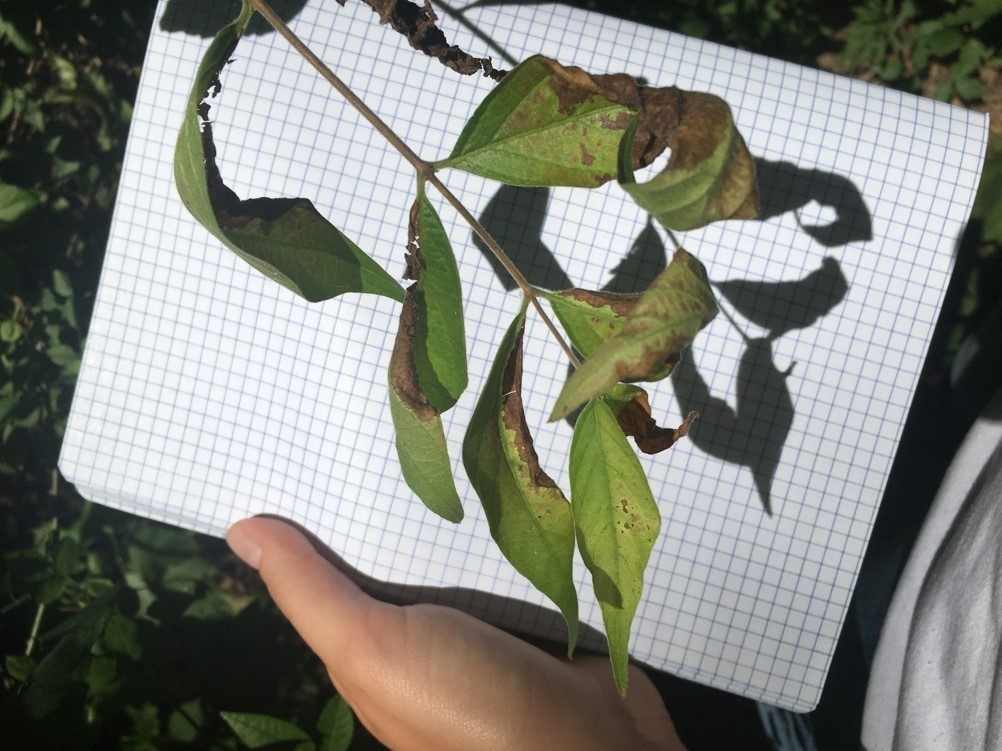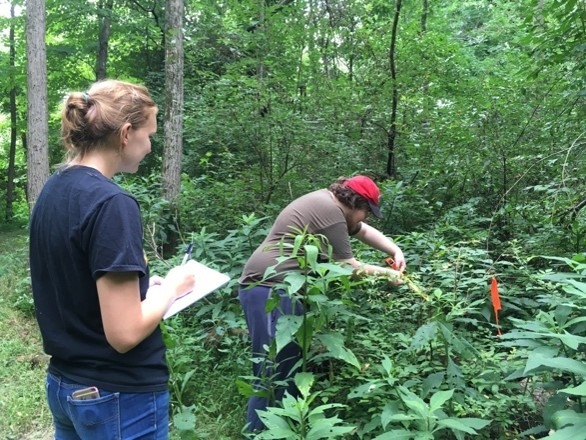
Natalie Holsclaw measures shoot growth in honeysuckle at the NKU Research and Education Field Station

Honeysuckle shoot showing effects of Insolibasidium deformans fungal blight

The Amur honeysuckle is one of the most problematical invasive species in the Tristate region. Brought to the United States from the Amur River valley of China as an ornamental and to prevent hillside erosion, the shrub spread wildly with devastating effects on native species.
But now, research led by NKU Biological Sciences Professor Richard Boyce has shown that a native fungus is helping fight back against the honeysuckle invasion. Undergraduates Natalie Holsclaw, Allison Jones and Nathan Boyce spent the summer doing a field study to determine the effects of the Insolibasidium deformans fungus on honeysuckle growth.
The students tagged 20 shrubs at the the NKU Research and Education Field Station (REFS) in Melbourne, KY, then followed the growth from June to early August. They discovered that the blight has the greatest impact on new shoots, which Nathan Boyce said is good news for controlling the invasion. "They produce new shoots every year, so if the leaves are dropping, the shrubs won't be able to photosynthesize and store energy for future growth and reproduction."
Allison Jones explained the project was a logical followup to greenhouse research conducted in 2017. "The greenhouse project helped show how the blight could be spread to plants, but we needed to get into the field to determine if the blight was having the same effect in a natural setting."
A poster explaining the project was presented as part of the 2018 Heather Bullen Celebration of Research August 29th. The research was supported by the NKU Center for Integrative Natural Sciences and Mathematics and the UR-STEM Fellowship program.